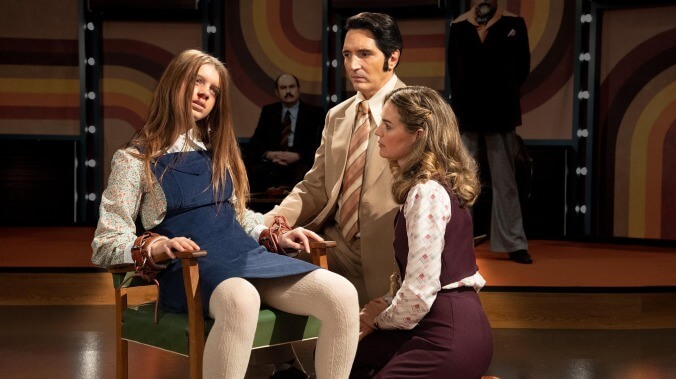Late Night With The Devil creators address those viral AI images
Fans were disappointed to discover that the new, found footage horror film uses AI generated images for a few of its transitions

The temptation to use artificial intelligence instead of human artifice has come to haunt the film industry as much as any ghost. The latest title to come under fire for caving into this particular poltergeist is IFC Films’ Late Night With The Devil, a found-footage horror flick from Australian sibling duo, Cameron and Colin Cairnes, that follows the entirety of a fictional late-night broadcast from the ‘70s as it spirals out of control due to a Satanic possession.
Sounds like a perfect opportunity to let some artists sink their teeth into a cool and unique aesthetic, right? That’s not what the Cairnes brothers decided to do, at least not with a few specific images. Although the film officially releases in theaters tomorrow, early screenings revealed that it includes some clearly AI-generated images in cutaway scenes throughout its run.
Spurred on by a Letterboxd review from user “based gizmo” (via Variety), who urged viewers not to “let this be the start of accepting this shit in your entertainment,” disappointed fans took to the platform as well as Twitter/X to express their disappointment in the directors’ choice. “They didn’t care enough to make it, why should I care enough to watch it?” wrote one user. “This could have been a dream job for an artist like me,” wrote another, who actually took the time to recreate the image herself. Here it is as a salve:








![HBO teases new Euphoria, Larry David, and much more in 2026 sizzle reel [Updated]](https://img.pastemagazine.com/wp-content/avuploads/2025/12/12100344/MixCollage-12-Dec-2025-09-56-AM-9137.jpg)































